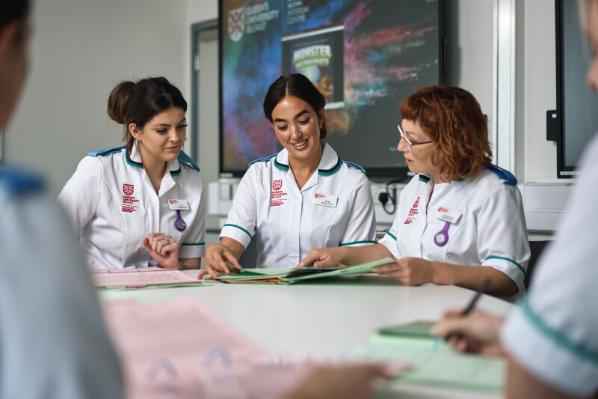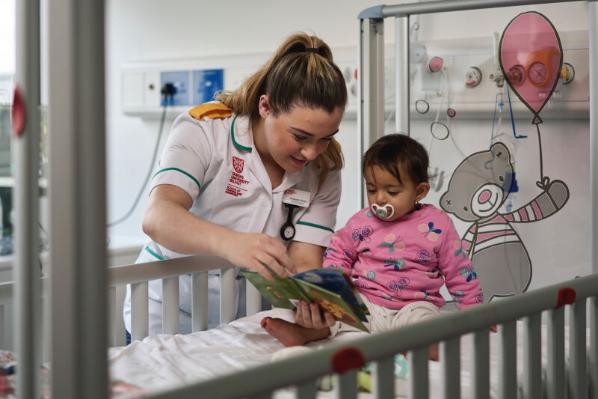 Professor Danny McAuley
Professor Danny McAuley
Critical Care Research
At Queen's
Our Research
Queen's research focusses on improving outcomes for critically ill patients through innovative approaches, spanning multiple domains including sepsis management, respiratory failure, and critical care delivery systems. By integrating clinical trials, translational research, and advanced biotechnological methods, researchers at Queen’s aim to develop evidence-based practices that enhance patient care.
Collaborative efforts with global health organizations and interdisciplinary teams further strengthen impact, driving advancements that are rapidly translated into clinical practice to improve survival rates and quality of life for patients in critical care settings.
Case Studies
Research topics
-
ARDS/ARF and Mechanical Ventilation Strategies
Queen’s research in acute respiratory distress syndrome (ARDS) spans the full spectrum from fundamental definitions and phenotyping to clinical trials and implementation studies. Researchers are advancing international guidelines that shape diagnosis and management, while also exploring innovative biological and pharmacological therapies aimed at repairing lung injury. Large-scale clinical trials have tested ventilation strategies, drug interventions, and novel technologies to improve survival and recovery, complemented by mechanistic studies that uncover pathways driving inflammation and poor outcomes.
Alongside this, Queen’s leads practice-focused research to optimise weaning and respiratory support across ICUs, with ongoing trials extending into perioperative care and broader acute respiratory failure, ensuring their work continues to inform and transform frontline critical care.
Featured Publications:
- ESICM guidelines on acute respiratory distress syndrome: definition, phenotyping and respiratory support strategies
- Repair of acute respiratory distress syndrome by stromal cell administration (REALIST) trial: A phase 1 trial.
- Aspirin as a Treatment for ARDS: A Randomized, Placebo-Controlled Clinical Trial.
- A new approach to weaning critically ill patients from mechanical ventilation across the UK
- Elevated ferritin, mediated by IL-18 is associated with systemic inflammation and mortality in acute respiratory distress syndrome (ARDS)
- Effect of Lower Tidal Volume Ventilation Facilitated by Extracorporeal Carbon Dioxide Removal vs Standard Care Ventilation on 90-Day Mortality in Patients with Acute Hypoxemic Respiratory Failure: The REST Randomized Clinical Trial
- Ongoing Clinical Trial: The MARCH trial - Researching the clinical and cost effectiveness of mucoactive drugs in acute respiratory failure
- Ongoing Clinical Trial: SINFONIA clinical trial comparing two drugs used to improve recovery from general anaesthesia and prevent lung complications in patients undergoing major surgery.
- Paediatric Critical Care
Queen’s has significantly advanced paediatric critical care through several impactful studies. The SANDWICH trial -the largest ever randomised controlled trial in paediatric intensive care, involving over 10,000 critically ill infants and children across 18 UK and NI units - demonstrated that nurse-centred care, daily readiness-to-wean assessments, and reduced sedation can safely reduce mechanical ventilation duration by about six hours and improve successful extubation rates.
Researchers have also explored variations in ventilation weaning and extubation practices across Australia and New Zealand, highlighting a predominance of medically driven decisions and limited protocol use, emphasising the need for enhanced multidisciplinary collaboration. Queen’s researchers also prioritised patient safety by analysing paediatric critical incident and medication error data, laying the groundwork for targeted quality improvement efforts in medication safety within Northern Ireland’s paediatric services
Featured Publications:
- Delivery of a novel intervention to facilitate liberation from mechanical ventilation in paediatric intensive care: a process evaluation
- Fluid management and active fluid removal practices: a global survey of paediatric critical care physicians
- National screening for delirium in paediatric intensive care units: a quality improvement initiative
- Achieving excellence in paediatric cardiac care in resource limited and resource plentiful settings and building successful care networks across different countries
- Paediatric index of mortality 3: an updated model for predicting mortality in pediatric intensive care
- Delivery of a novel intervention to facilitate liberation from mechanical ventilation in paediatric intensive care: a process evaluation
- COVID-19
Queen’s research into critical illness and COVID-19 has made major contributions to both global evidence and local patient care. Work has spanned large international trials evaluating drug therapies, respiratory support strategies, and long-term outcomes for critically ill patients. Researchers have investigated novel treatments, repurposed medications, and advanced cell-based therapies to improve survival and recovery, while also assessing how best to deliver respiratory care without invasive ventilation. Beyond acute management, studies have explored long-term physical and functional outcomes, highlighting the ongoing impact of critical illness well after hospital discharge.
Featured Publications:
- Interleukin-6 receptor antagonists in critically ill patients with Covid-19
- Simvastatin in Critically Ill Patients with Covid-19
- Effect of Noninvasive Respiratory Strategies on Intubation or Mortality Among Patients With Acute Hypoxemic Respiratory Failure and COVID-19: The RECOVERY-RS Randomized Clinical Trial
- Repair of Acute Respiratory Distress Syndrome in COVID-19 by Stromal Cells (REALIST-COVID Trial): A Multicenter, Randomized, Controlled Clinical Trial.
- Long-term (180-day) outcomes in critically ill patients with COVID-19 in the REMAP-CAP randomized clinical trial
- Prevalence of physical frailty, including risk factors, up to 1 year after hospitalisation for COVID-19 in the UK: a multicentre, longitudinal cohort study
- Fluids and sepsis
Queen’s research in sepsis focuses on improving diagnosis, treatment, and supportive care for critically ill patients. Studies have advanced understanding of fluid management, vascular leak, and the role of fluid therapy in patient outcomes, while also testing new approaches such as earlier transitions to oral antibiotics in lower-risk cases. Researchers are leading international efforts to refine how fluids and antimicrobials are used, ensuring safer and more effective care. Building on this, the ongoing SepTIC Trial is tackling key questions around rapid infection diagnostics, optimal fluid strategies, and immune support in the sickest patients
- Fluid management and active fluid removal practices: a global survey of paediatric critical care physicians
- Vascular leak in sepsis: physiological basis and potential therapeutic advances
- Fluid Therapy in Sepsis - Does it Matter How Much?
- Early switch to oral antibiotic therapy in patients with low-risk neutropenic sepsis (EASI-SWITCH): a randomized non-inferiority trial
- Vascular leak in sepsis: physiological basis and potential therapeutic advances
- Ongoing Clinical Trial: SepTIC Trial
- Rehabilitation after ICU
Queen’s research is addressing the longer-term journey of patients beyond the ICU, with a focus on recovery, rehabilitation, and quality of life after critical illness. Studies have highlighted challenges such as medication-related risks, withdrawal syndromes, and the unmet needs survivors face once discharged. Researchers also examine how multimorbidity shapes recovery and whether new models of care are required for these complex patients. To support better outcomes, Queen’s is leading trials like iRehab, which is testing innovative, remote rehabilitation approaches to improve recovery and cost-effectiveness compared to standard care.
- Opioid, sedative, pre-admission medication and iatrogenic withdrawal risk in UK adult critically ill patients: a point prevalence study
- Recovery following discharge from intensive care: what do patients think is helpful and what services are missing?
- Do critical illness survivors with multimorbidity need a different model of care?
- Ongoing Clinical Trial: iRehab – Researching the clinical and cost effectiveness of a remote multicomponent rehabilitation intervention compared to standard care in survivors of critical illness following discharge home.
 Dr Jon Silversides
Dr Jon Silversides Dr Peter McGuigan
Dr Peter McGuigan Professor Bronwen Connolly
Professor Bronwen Connolly Professor Ronan McMullan
Professor Ronan McMullan Professor Cecilia O'Kane
Professor Cecilia O'Kane

